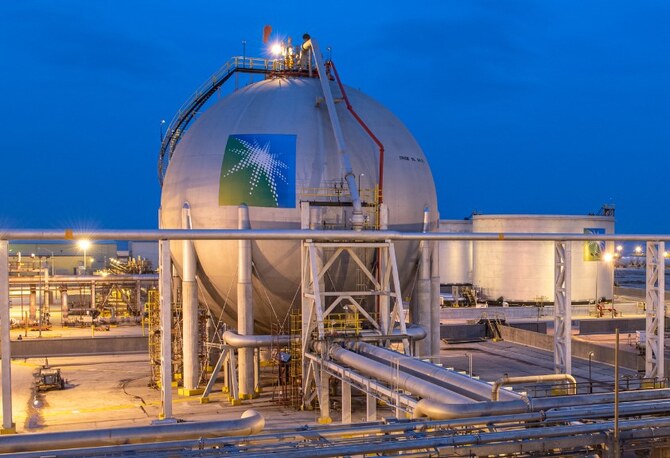RIYADH: Fitch Ratings has reaffirmed Saudi Aramco’s long-term issuer default ratings at “A+” for both foreign- and local-currency ratings, with a stable outlook, reflecting the oil giant’s strong financial standing and its crucial role in the Saudi economy.
The rating is underpinned by Aramco’s robust financial profile, though it is capped by the rating of its majority shareholder, the Saudi government, which owns 81.48 percent of the company. The Public Investment Fund holds an additional 16 percent. According to Fitch, this structure influences Aramco’s ratings due to the government’s significant stake and control.
Fitch assigned Aramco a standalone credit profile of “aa+,” highlighting its solid financial position. The agency also gave the company a short-term IDR of “F1+,” which is aligned with the sovereign rating.
The affirmation comes after Aramco’s strong performance in 2023, when its total liquid production averaged 10.7 million barrels per day, and its hydrocarbon output reached 12.8 million barrels of oil equivalent per day. This performance outpaced major global peers, including Shell, TotalEnergies, and BP.
In its statement, Fitch noted that Aramco’s rating is constrained by Saudi Arabia’s rating, in line with Fitch’s Government-Related Entities Rating Criteria. This is due to the government’s substantial influence over Aramco, particularly its regulation of production levels in accordance with OPEC+ commitments.
Fitch also emphasized the company’s “Very Strong” governance, reflecting the government’s strategic oversight, including the ability to determine Aramco’s maximum sustainable oil production capacity.
Aramco’s conservative financial management further bolsters its credit profile, with the company’s leverage expected to remain lower than that of other major global oil and gas companies. Fitch also praised Aramco’s sustainable dividend policy, which is set to include a base dividend of $81.2 billion in 2024, with additional performance-linked payouts.
“Under our oil price assumptions, we expect Saudi Aramco’s capital expenditures and base dividend payments to be broadly covered by operating cash flow. We also assume that the company has the flexibility to adjust its dividend commitment if oil prices decline or if capital expenditures exceed current forecasts,” Fitch said.
In 2024, Aramco is expected to pay total dividends of $124 billion, including $43.1 billion in performance-linked payouts, reflecting record cash flows from 2022-23. Fitch forecasts a reduction in capital expenditures from $50 billion in 2024 to $35 billion by 2028, with annual dividends projected to decrease to $82 billion over the same period.
The agency also highlighted Aramco’s critical role in Saudi Arabia’s economy, noting the company’s importance as a key provider of feedstock for power generation and other essential industries, in addition to its vast reserves and production capacity.
Fitch anticipates that the Saudi government would provide support if needed, although the company’s strong financial position has historically not required direct state intervention.
On a national level, Fitch assigned Aramco a long-term rating of “AAA (sau)” based on its substantial reserve base, strong profitability, and market position.
The company’s standing was also compared favorably to other prominent Saudi entities, such as Saudi Basic Industries Corp. and Saudi Electricity Co., within Fitch’s National Scale Rating framework.






















